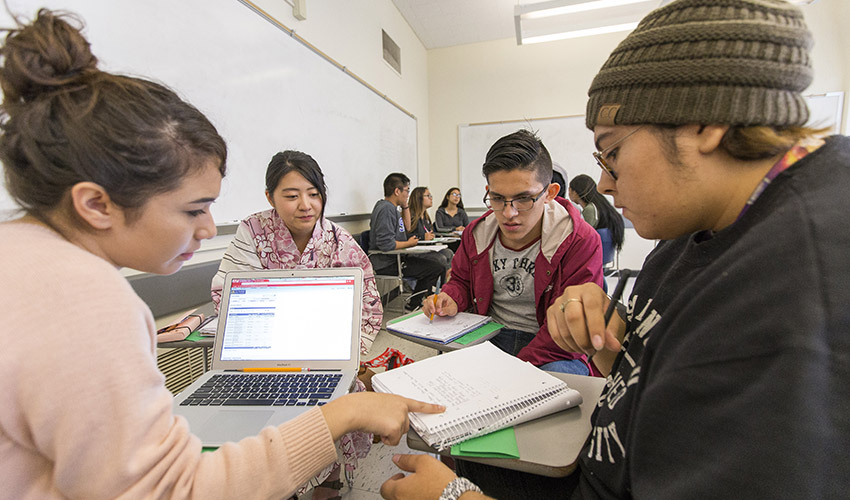$1.5 million grant aims to boost retention and graduation rates

“There is a common stereotype that Asian Americans in particular are the model minority and that they have no trouble graduating from SF State. However, this is far from the truth when one looks at data by ethnicity, income and also disability,” said Grace Yoo, professor and chair of Asian American Studies. Yoo will oversee the new ASPIRE program in partnership with co-investigator Luoluo Hong, vice president for Student Affairs & Enrollment Management.
San Francisco State University will launch a new program, funded by a five-year, $1.5 million U.S. Department of Education grant, aimed at improving retention and graduation rates of high-need, low-income students.
The goal of the Asian American and Pacific Islander Retention and Education, or ASPIRE, program is three-pronged: improve and expand the University’s capacity to serve high-need Asian American and Pacific Islander students, as well as low-income, degree-seeking undergraduate students; improve the learning environment; and improve the retention and graduation rates.
Grace Yoo, professor and chair of Asian American Studies, will oversee the program in partnership with co-investigator Luoluo Hong, vice president for Student Affairs & Enrollment Management.
“This project evolved from a need that Asian American Studies faculty found within the classroom. Since its founding in 1969, the College of Ethnic Studies has traditionally been a safe haven for students of color. Students have felt support within the college here,” said Yoo. “Faculty and staff in general understand that their mission is to support students in their retention and graduation from SF State. As a result, recognition of the need for non-cognitive, or social and emotional, support continually emerged in and out of the classroom.”
According to Yoo, the ASPIRE program was developed to help high-need AAPI and low-income students with the greatest need for support, including Pacific Islanders; Southeast Asians, particularly Cambodian, Laotian and Vietnamese students; low-income students; first-generation college students; students at risk of educational failure; and students with learning disabilities.
More than one-third of SF State students belong to these demographic groups, and significant numbers are in high-need student demographic groups, including students from low-income families (47 percent of students receive Federal Pell Grant aid) and first-generation students (36 percent). Furthermore, Yoo noted, a majority of students arrive at SF State academically underprepared for college, with 50 percent of all first-year students needing remediation in math or English.
Yoo said the program will focus on addressing disadvantaged individuals’ needs in a number of key areas: academic barriers (writing and composition), non-cognitive skills gaps, financial pressures and learning disabilities and mental health challenges.
They’ll do that by identifying and providing support for students with learning disabilities; creating a peer-mentorship program; creating student learning communities in Asian American Studies and Pacific Islander Studies; and establishing faculty learning communities.
“This initiative is a real opportunity for targeted support,” Yoo said.